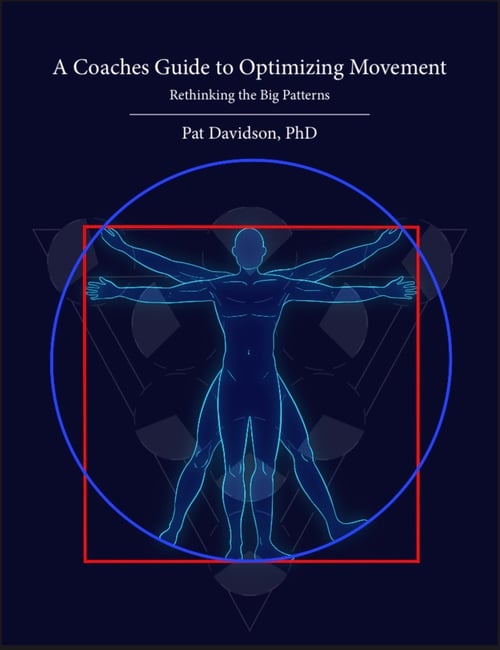Rethinking the Big Patterns Online Course
Introductory Course and Portal to Seminars and RTBP Certification

Description
Rethinking the Big Patterns biomechanics based training model will help you understand the evolution, application, and optimization of human movement and enable you to improve how you teach and train movement.
In this self-paced course online course, users will learn:
- 7 Pillars of Movement: Understand the 7 Pillars of Movement and how to combine them to drive desired adaptations, and avoid undesired side effects
- 10 Principles of Exercise Progression: Learn about them and how to apply them.
- Classification of Movement Quality: Pattern, Plane, and Stance dimensions.
- Classification of Movement Quantity: Load, Velocity, and Plane dimensions.
- Theoretical Models: Including models of variability, invariant representation of memory, asymmetry, Jacksonian Dissolution, and the Evolutionary Ladder.
Participants will have access to video content as well as PDF articles guiding them through this introductory material. Course takes approximately 10 hours.
In order to complete the course, you must pass the introductory exam. Upon completion, participants will be eligible to receive 0.8 CEU credits from NSCA and NASM and 8 CEU credits from AFAA.
This course is best for personal trainers, Strength & Conditioning coaches, Physical Therapists, and anyone looking to better their understanding of biomechanics and how it relates to training.
Once participants have passed this introductory quiz, they will be granted access to the seminar portal. This portal will allow participants to be able to sign up for in-person seminars.
There are three foundational seminars for Rethinking the Big Patterns: Control Patterns, Athletic Patterns, and Resistance Training Patterns. Seminars will be held across the US and Internaionally.
After participants have completed the Introductory quiz and the in person Seminars, they will be able to take the final exam, which will be comprehensive. After completing the final exam, participants will be certified, Rethinking the Big Patterns coaches.
Learning Objectives
Upon completion of this course, participants will be able to:
- Identify the 13 motor patterns associated with the model
- Identify the 3 stances associated with the model
- Identify the 3 planes of motion
- Identify the 3 loading zones, velocity zones, and duration zones for exercise associated with the model
- Define the sensorimotor competencies of the sagittal plane, frontal plane, and transverse plane
- Identify the 10 Principles of Progression
- Understand the concept of the Propulsion Arc
- Identify the 2 types of muscle orientation
- Identify the 2 types of movement strategies
- Identify the 2 types of muscular action
- Explain the theoretical models of variable, invariant representation of memory, asymmetry, Jacksonian Dissolution, and the Evolutionary Ladder
Course Procedure
- Purchase and enroll in the course.
- Take yourself through the self-paced course content.
- At the end of the modules, take the introductory course exam. (You must score 80% to pass. If you do not pass, you may retake the test.)
- Upon passing the exam, you will receive a certificate of completion by email.
- You will now have access to sign up for the seminars via the online portal
Course Content
| Introduction to the Model | Module | ||
| Movement Quality | Module | ||
| Movement Quantity | Module | ||
| Sagittal Plane Sensorimotor Competencies | Module | ||
| Frontal Plane Sensorimotor Competencies | Module | ||
| Transverse Plane Sensorimotor Competencies | Module | ||
| Movement Strategies | Module | ||
| Muscular Orientation and Action | Module | ||
| Principles of Progression | Module | ||
| The Propulsion Arc | Module | ||
| Introduction to Theoretical Models and Variability | Module | ||
| The Invariant Representation of Memory | Module | ||
| Asymmetry | Module | ||
| Jacksonian Dissolution | Module | ||
| Learning Stages | Module | ||
| Climbing Up and Down the Evolutionary Ladder | Module | ||
| Introductory Exam | Module |